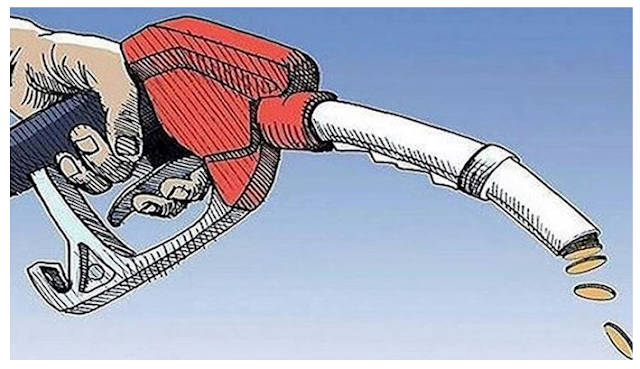Revealing Books on Iran IRGC and Weapons of Mass Destruction
The NCRI has published about the IRGC
NCRI, May 5, 2019 - Following the designation of the Iranian Regime’s Islamic Revolutionary Guard Corps (IRGC) as a Foreign Terrorist Organization (FTO) by the United States Government, the Committee on Publications of the National Council of Resistance of Iran (NCRI) released the names of books that the Iranian Resistance has published over the past five years about the Iranian regime’s terrorism, fundamentalism, warfare and weapons of mass destruction. They are:
"How Iran Regime Cheated the World" - June 2014. This book is about the systematic actions of the clerical regime to conceal its nuclear weapons production project, especially the dimensions of SPND.
“Iranian Regime’s Nuclear Duplicity” - January 2016. This report is about the deceptive practices of the regime in negotiations with the P5 + 1 countries.
"Iran: A Writ of Deception and Cover-up" - February 2016. This report is about the regime's secret committee to hide the military dimension of the nuclear program and deceive the International Atomic Energy Agency.
"How Iran Fuels Syria War" – two editions, September and November 2016. This book is about the Iranian regime’s interference in Syria, and how it has divided the country into five military commands and set up 18 military bases. It details the regime’s operations including its proxies and includes images and specifications of more than 60 of the IRGC commanders killed in Syria.
“The Rise of the Revolutionary Guards' Financial Empire" - March 2017. This book is about the concentration of the Iranian economy in 14 giant conglomerates controlled by the Vali-e Faqih and the Revolutionary Guards. It details the economic and financial web of the IRGC and its associate entities, and how the IRGC spend the oil revenue and assets of the Iranian people on terrorism.
“Terrorist Training Camps in Iran" -June 2017. This book details how the Iranian regime recruits foreign fighters, the methods used for their training and 15 training centers in Iran.
“Iran’s Nuclear Core” - October 2017. This book includes the details of uninspected nuclear sites associated with SPND, which forms the core of the nuclear weapons program of Iran.
"Iran: Cyber Repression" - February 2018. This book is about the cyber-espionage by the Islamic Revolutionary Guards Corp, its front companies and various fake apps created to spy on the Iranian citizens opposing the regime.
"Iran’s Ballistic Buildup" - May 2018. This manuscript is about the accelerating efforts of the regime for the production of missiles, capable of carrying nuclear warheads, the IRGC and MOD missile structure, and the details of 42 sites related to the production, maintenance and launching of missiles.
"Iran Doubles Down on Terror and Turmoil" - November 2018. This book is about the regime's warmongering interference in the countries of the region, terrorism abroad and the role of the regime's embassies in this regard.
"Iran’s Emissaries of Terror; How mullahs’ embassies run the network of espionage and murder - May 2019. This book is about the performance of the regime's embassies, especially in Albania, Germany, Austria, Italy, and France, which operate as the hub for the terror plots carried out by the Ministry of Intelligence and Security (MOIS), and the decision-making for terror operations.
Prior to these publications, three books have been published on the actions of the religious fascism ruling Iran and its threat to the region and the world. They are:
"The Revolutionary Guards, the Fundamentalist and Terrorist Army" -2008, Mehdi Abrishamchi
"The Iran Threat; President Ahmadinejad and the coming nuclear crisis" - February 2007,authored by Alireza Jafarzadeh and published by Palgrave Macmillan.
"Islamic fundamentalism, the New Global Threat" -1993, authored by Mohammad Mohaddessin and published by Seven Locks Press.
The National Council of Resistance of Iran has not only revealed the actions and projects of the mullahs’ anti-Iranian regime but has also been the standard bearer on advocating the adoption of a decisive policy instead of the catastrophic policy of appeasement. In the words of the President of the National Council of Resistance of Iran, "The international community must wake up, humankind must be enlightened so that the foundations for crippling sanctions against the Iranian regime could be established.” (July 18, 2015).
"This leading and guiding role is not only a duty to the nation and the defense of the supreme values of the country but also is in the service of the international community as well as peace and stability of the Middle East region" (the annual statement of the NCRI-August 2006).
National Council of Resistance of Iran – Committee on Publications
May 5, 2019
May 5, 2019






